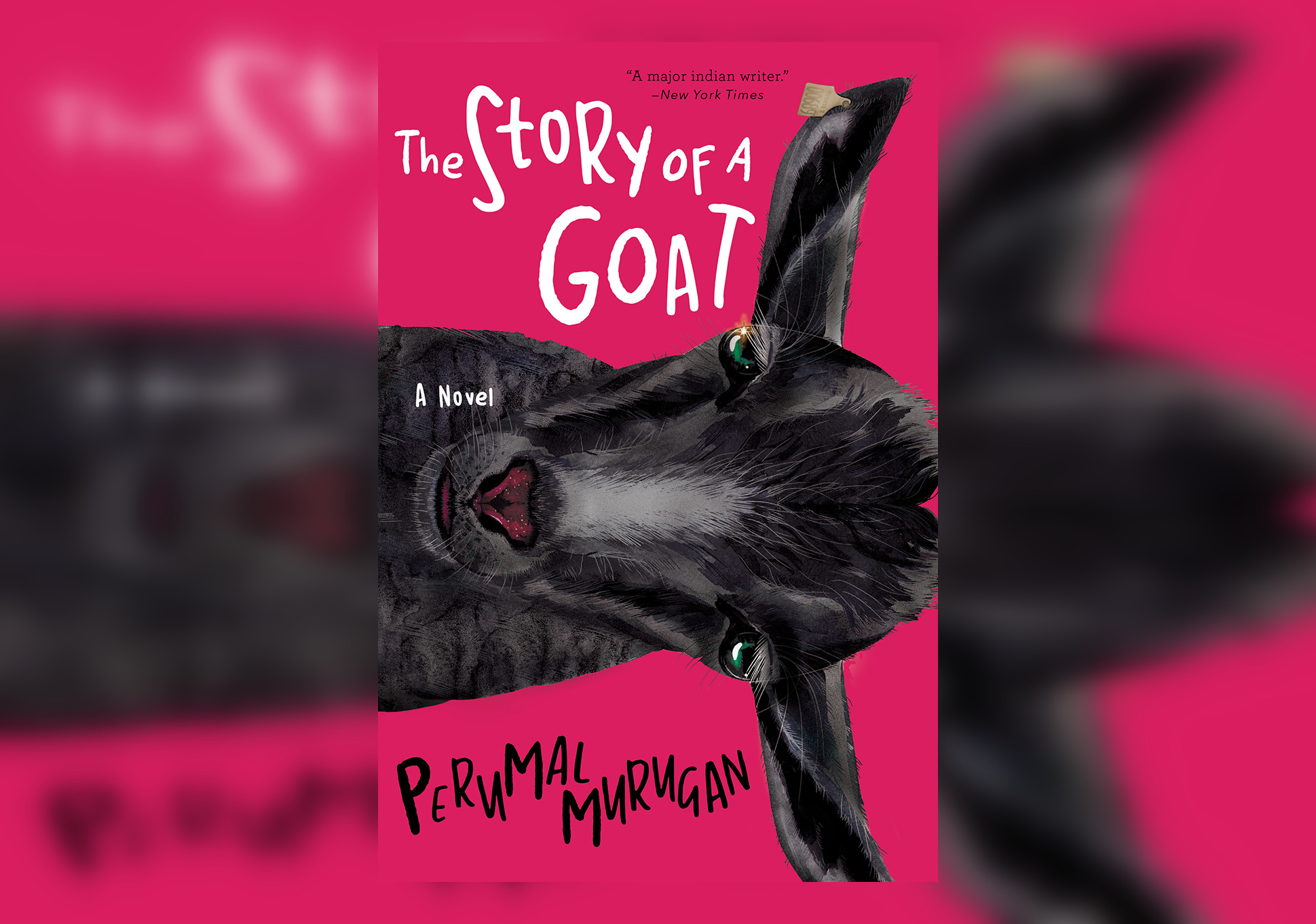Perumal Murugan grew up in a family of farmers in Tamil Nadu. He is one of India’s most well-known literary writers, having produced ten novels and five collections each of short stories and poetry. Several of his novels have been translated into English, including Seasons of Palm and Current Show. His best-known novel in the west, One Part Woman, was longlisted for the inaugural National Book Award for Translation. It won the prestigious ILF Samanvay Bhasha Samman for writing in Indian languages and the Translation Prize from Sahitya Akademi, India’s National Academy of Letters.
Murugan’s latest book to be published in the United States, The Story of a Goat, has been rendered into soft, lyrical English by N. Kalyan Raman, who has been a translator of contemporary Tamil fiction & poetry since the mid-nineties.
Opening on a sleepy day, set amidst a backdrop of stark rural life in Tamil Nadu, The Story of a Goat—in the tradition of fables and histories like Romulus and Remus, Thumbelina, Peach Boy, Krishna—starts with a female goat kid being gifted to a nameless old couple by what appears to be a giant demon called Bakasuran. The name of the old couple’s fictional village, Asuras, also means “demons”. In Orwellian fashion, the goat—whom the old woman names Poonachi—is anthropomorphized throughout the story.
Poonachi’s upbringing—and here, we must not forget that she is a female goat—continuously serves to remind us of contemporary reality, acting as a parable for a society that today is rising with right-wing turmoil and gender-based violence. When Murugan first wrote One Part Woman, he was attacked, threatened, and forced to write an apology by a caste-sensitive and religiously fanatic mob. In the aftermath of this violence, he announced to the world: “Perumal Murugan the writer is dead.” While some time later the justice system in India upheld his right to write, in the afterword to The Story of a Goat he still says, “I am fearful of writing about humans; even more fearful of writing about gods.”
What Poonachi as a vessel does in the novel—what gods and goddesses may fail to do—is remind us that the human experience is fragile and beautiful, tenacious and wild. Poonachi is an exemplary female form and a carrier of feminine trauma: she is, as Kalyan Raman puts it, “the structural violence embedded in the life of a female.” While the old couple, farmers at heart and therefore more in tune with animals than us city-dwellers can ever be, toil to raise and love her, Poonachi’s idyllic childhood quickly turns to the pricking awareness of puberty and the consequences of desire. Violence surrounds this goat and her keepers; this is not a children’s fairy tale. Her lover is killed, her brothers castrated, her children given away and murdered in front of her eyes—Poonachi stands, and wonders, and gives to others more than she was born with, while the landscape that surrounds her goes from lush to barren, from sumptuous to one where people fight for rations.
Seeded throughout the narrative is a humorously crafted criticism of authoritarian power. Queues are made fun of, the actions of egotistic bureaucracy derided, and one person even remarks that humans can’t so much as fart without “the regime” being made aware of it. As the novel gallops to its inevitable conclusion, we are regaled with a solipsistic goat; Poonachi’s consciousness is fading, and yet her own self is all that she is tenuously attached to, because the world has betrayed her even as she has sat at the edge of a forest pool and reflected on its beauty. Murugan, in The Story of a Goat, gives birth to an idea, violates it, redeems it, and lays it to rest—his novel is no less than the narrative of all humanity.




